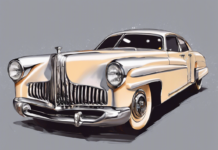One of the 21st century’s finest contributions is how well the banking system has gotten with humanity. Borrowing money, saving money, acquiring funds, paying through installment plans, investing in stocks and bonds, and even dabbling in cryptocurrency has gotten to the point that almost everyone could enter with just a few requirements. This is good for the masses, as they get to have access to more things in life without necessarily having to devote every resource they have right away whenever buying something. This opens up avenues for better liquid funds, lesser-risk investments, and even an overall sense of financial security for everyone.
However, banks aren’t as straightforward as they used to be. What used to be deposit and withdrawal is now an elaborate and intricate system of exchanging money and resources. This doesn’t necessarily mean, however, that banks are to be avoided. Rather, knowing a lot of their concepts and systems will yield better financial results and financial literacy as a whole. Other than common questions such as does the bank have a checking account bonus or how extensive the coverage of their networks is, there are fundamental things that one should be aware of whenever they’re opening a bank. With that in mind, let’s explore what a bank really is and what the common types of banks that are available are.
What is a bank?
To establish, a bank is basically a financial institution that operates on deposits, withdrawals, and loans. Whenever somebody deposits money in a bank, this allows the institution to offer up money for others to borrow. With the borrowed money, it must be returned to a bank with interest. The interest rates and other fees are what make banks profitable. With that in mind, what are the types of banks?
- Commercial bank – A commercial bank focuses more on companies and other businesses. Small-scale businesses and multinational corporations could all benefit from commercial banks. Commercial banks still operate on the same fundamental functions as a bank, with a few other features. For one, commercial banks could offer up bigger loans for money borrowing, so they’re the prime spot for business startups. They also have better international connections for foreign trade and credit transfers, so if you’re somebody who’s always traveling, then a commercial bank might be for you.
- Cooperative – A cooperative is a type of banking system that relies more on the local community for how it’s run. Instead of having a multinational-level organization with small interest rates, a cooperative bank could offer up small loans for very little interest. They could also have a more flexible deposit and withdrawal systems, so it’s perfect for the local community that wants to save and take loans from.
- Investment bank – If a person is financially secure and is willing to take risks, then investment banks might be the best option. Investments differ from savings in the way that they have higher risks of losses but also higher risks of rewards. Meaning your money invested is a little bit more volatile than the conventional savings account. However, that also means that if you know how to read the market, then you’re probably gonna be able to earn more investing than saving.
- Central bank – A central bank is the head banking system that manages the supply of money within a country or state. There are also central banks that hold money for different countries, making them the largest and most powerful bank types. They basically oversee commercial banks, control interest rates, and even dictate the flow of currency. Central banks are also known as the government’s banks, with big roles to fill. For example, central banks could be the safeguard from a total collapse of a monetary system by lending very large amounts of money to a whole country.









